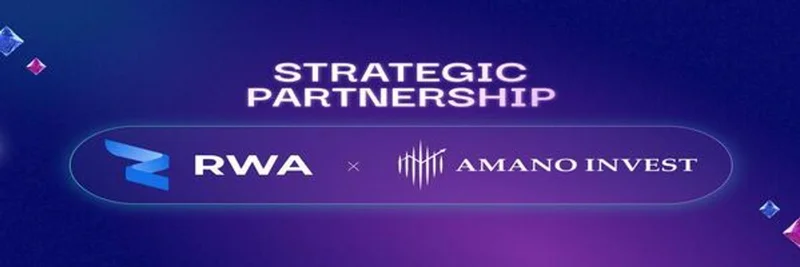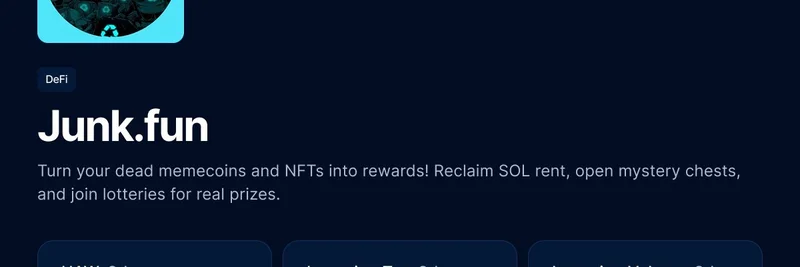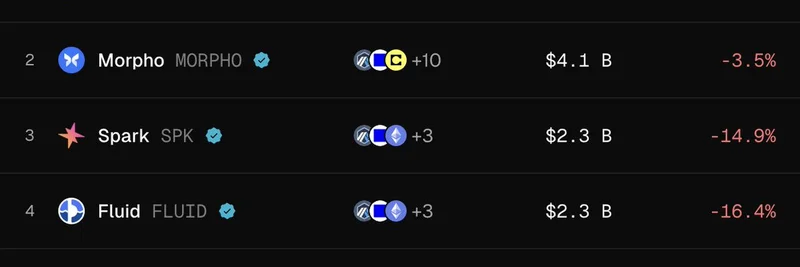The RWA token on BNB Chain (formerly known as Binance Smart Chain) stands at the intersection of blockchain innovation and traditional finance. Here, we'll break down what the RWA token is, why real world asset (RWA) tokenization matters, and how you can get involved in this evolving sector.
What Is the RWA Token?
The RWA token (contract address: 0xd425f8e0442892c7c7aa13321d36c815aa81be1c) exists on BNB Chain and typically represents the idea of “Real World Assets.” While “RWA” is a broad term for blockchain assets backed by tangible items like real estate, commodities, or financial instruments, this particular token is associated with RWA Inc. and various tokenization platforms on the BNB Chain ecosystem.
BNB Chain has become a major hub for RWA-related projects, including tokenized stocks, treasury bills, real estate, art, and more. The rise of RWAs signals a shift toward using blockchain technology to unlock value from assets that, until now, were largely illiquid or out of reach for most investors.
Why Is Real World Asset Tokenization a Big Deal?
Tokenization means converting real or financial assets into digital tokens on a blockchain. This isn't just a technological fad—it has serious advantages:
- Liquidity: Traditionally illiquid assets (like real estate or art) become tradable 24/7.
- Fractional Ownership: Expensive assets can be divided into smaller tokens, so more people can invest.
- Efficient Management: Blockchains make tracking ownership, transfers, and payments transparent and fast.
- Broader Access: Previously exclusive markets open up to a global pool of investors.
Some noteworthy real-world examples on BNB Chain include tokenized U.S. Treasury Bills (like VBILL by VanEck), gold-backed tokens, and even tokenized fine art.
How Does the RWA Token Work?
The RWA token is typically built using the ERC-20 standard (compatible with BNB Chain’s technology stack), meaning it supports basic functions like transferring tokens, approving allowances, and possibly minting new tokens. Token creation is often streamlined using no-code platforms on BNB Chain, enabling users or businesses to tokenize assets without needing to write smart contracts themselves.
For instance, service providers like Brickken and Bitbond offer user-friendly solutions to create and manage tokenized assets, facilitate investor onboarding, and ensure compliance.
What Does the RWA Token Represent?
While “RWA” stands for “Real World Assets,” the specific assets backing this token (at 0xd425f8e0442892c7c7aa13321d36c815aa81be1c) are not fully detailed in public sources. It may represent:
- A fractional stake in real estate, financial products, or collectibles.
- Collateral in lending or DeFi protocols.
- A governance or utility token for a broader RWA-focused ecosystem.
Given the rapid evolution in this space, always verify which asset a specific token represents and whether the platform provides real-time proof of reserves or asset backing.
Tokenomics and Market Details
- Total Supply: 21,000,000 RWA tokens
- Holders: Over 201,000 unique wallets, suggesting broad distribution and community interest.
- Current Price: BscScan reports a price of $0.00, which could indicate either low liquidity, inactive trading, or lack of listing on major exchanges. Always cross-check with platforms like CoinMarketCap, PancakeSwap, or gmgn.ai for up-to-date trading data.
Typical Parameters in RWA Token Offerings
- Sale Caps: Pre-defined hard and soft caps for fundraising rounds.
- Investment Limits: Minimum and maximum purchase requirements for investors.
- Accepted Payment: Often BNB or stablecoins (e.g., USDT).
- Token Lockups: Periods where new tokens cannot be immediately traded, increasing investor protection.
The Growing RWA Ecosystem on BNB Chain
BNB Chain is fast becoming a powerhouse for RWA tokenization thanks to:
- Scalability and Low Fees: BNB Chain’s architecture keeps transaction costs low and speeds high.
- Multi-Chain Framework: With opBNB and Greenfield, the chain supports secure storage and flexible asset management.
- Partners and Integrations: Major protocols like xStocks (tokenized U.S. stocks), Polytrade (business asset tokenization), and Binance’s RWUSD are leveraging BNB Chain to bridge traditional finance and DeFi.
Use Cases & Opportunities
- Liquidity for High-Value Assets: You can buy or trade fractions of assets that are otherwise out of reach—think owning a piece of a skyscraper or a famous artwork.
- DeFi Integration: RWA tokens can be used as collateral, staked for yields, or even participate in governance.
- Fundraising for Businesses: Startups and established businesses can issue tokens to raise capital against real assets.
- Transparency and Security: BNB Chain offers tools for real-time proof of reserves and transparent transaction history.
Risks and What to Watch Out For
- Asset Transparency: If you don’t know what’s backing the token, approach with caution.
- Market Liquidity: Some RWA tokens may not be actively traded, making it hard to buy or sell.
- Regulatory Uncertainty: Rules around asset-backed tokens are evolving quickly.
- Verification: Look for projects that offer real-time verification or proof-of-reserves for added trust.
How to Buy or Trade the RWA Token
The RWA token may be available on platforms like PancakeSwap and other decentralized exchanges. For a streamlined experience, including analytics and smart trading tools, check out gmgn.ai, which aggregates real-time performance data and makes tracking meme and RWA tokens hassle-free.
Final Thoughts
The RWA token on BNB Chain is part of a larger movement to bring real-world value onto the blockchain, transforming how we think about ownership, liquidity, and investment access. If you’re considering investing or trading, do your due diligence: verify the project’s asset backing, check active trading pairs, and stay updated on regulatory trends.
Pro Tip: For the latest trends, smart money movements, and easy RWA token trading, platforms like gmgn.ai are excellent starting points.
Want to dig deeper into RWA tokenization on BNB Chain? Check out:



